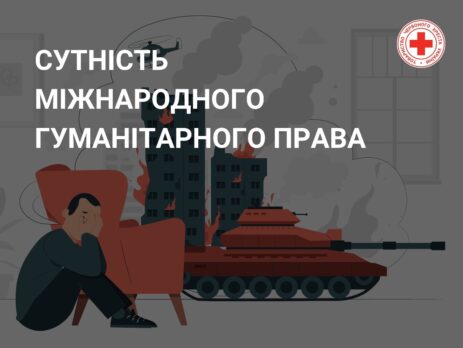The Essence of International Humanitarian Law (IHL)
International humanitarian law (IHL) is the branch of public international law that governs the protection of war victims and restricts the means and methods of warfare. Its primary sources include international treaties and customary norms. While conventional principles and norms of IHL are derived from international treaties, customary rules apply to areas not fully addressed by conventions. These customary rules bind states and non-state actors involved in armed conflicts.
The Essence of International Legal Regulation Concerning the Protection of War Victims
At its core, IHL represents a balance between two opposing principles: humanity and military necessity. It is only through this balance that international humanitarian law can function as a set of rules of conduct that parties to an armed conflict are obliged to follow.
- Military necessity allows the use of force to the extent required to achieve the goals of an armed conflict.
- In contrast, the principle of humanity prohibits causing excessive suffering, injury, or damage beyond what is necessary to accomplish those objectives.
It should be noted that international humanitarian law does not encourage or permit war; rather, it restricts the methods and means of warfare for reasons of humanity. In this way, IHL serves as a safeguard for humanity, even in the context of armed conflict. Its primary objective is to protect victims of war who are not, or no longer, involved in hostilities. The essence of the rules of international humanitarian law that limit arbitrariness during times of war was clearly and concisely articulated by the prominent humanist Jean-Jacques Rousseau:
“The object of the war being the destruction of the hostile State, the other side has a right to kill its defenders, while they are bearing arms; but as soon as they lay them down and surrender, they cease to be enemies or instruments of the enemy, and become once more merely men, whose life no one has any right to take.”
An important condition for the application of international humanitarian law (IHL) is adherence to the principle of non-reciprocity. This principle dictates that even if one party violates IHL, the opposing party is still obligated to comply with it. Additionally, a party’s failure to formally recognise the existence of an armed conflict, even when clear signs of it are present, does not relieve that party from the obligation to adhere to IHL.
Ultimately, the essence of IHL is to protect the victims of war by limiting the use of force in the interest of humanity. Achieving this goal depends on the political will of states, which is reflected in the specific rules outlined in international conventions. These rules provide a framework for conduct in armed conflict.
The Ukrainian Red Cross continues to play a pivotal role in promoting knowledge of international humanitarian law, explaining its principles, and emphasising the importance of compliance.

